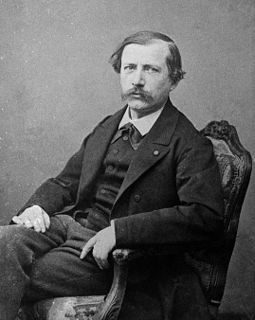A Quote by Blaise Pascal
Vanity of science. Knowledge of physical science will not console me for ignorance of morality in time of affliction, but knowledge of morality will always console me for ignorance of physical science.
Related Quotes
Ever since the beginning of modern science, the best minds have recognized that "the range of acknowledged ignorance will grow with the advance of science." Unfortunately, the popular effect of this scientific advance has been a belief, seemingly shared by many scientists, that the range of our ignorance is steadily diminishing and that we can therefore aim at more comprehensive and deliberate control of all human activities. It is for this reason that those intoxicated by the advance of knowledge so often become the enemies of freedom.
Science is being daily more and more personified and anthromorphized into a god. By and by they will say that science took our nature upon him, and sent down his only begotten son, Charles Darwin, or Huxley, into the world so that those who believe in him, &c.; and they will burn people for saying that science, after all, is only an expression for our ignorance of our own ignorance.
We have heard of a Society for the Diffusion of Useful Knowledge. It is said that knowledge is power, and the like. Methinks there is equal need of a Society for the Diffusion of Useful Ignorance, what we will call Beautiful Knowledge, a knowledge useful in a higher sense: for what is most of our boasted so-called knowledge but a conceit that we know something, which robs us of the advantage of our actual ignorance? What we call knowledge is often our positive ignorance; ignorance our negative knowledge.
To oppose knowledge is ignorant, and he who detests knowledge and science is not a man, but rather an animal without intelligence. For knowledge is light, life, felicity, perfection, beauty and the means of approaching the Threshold of Unity. It is the honor and glory of the world of humanity, and the greatest bounty of God. Knowledge is identical with guidance, and ignorance is real error
For this knowledge of right living, we have sought a new name... . As theology is the science of religious life, and biology the science of [physical] life ... so let Oekology be henceforth the science of [our] normal lives ... the worthiest of all the applied sciences which teaches the principles on which to found... healthy... and happy life.
The notion that science does not concern itself with first causes - that it leaves the field to theology or metaphysics, and confines itself to mere effects - this notion has no support in the plain facts. If it could, science would explain the origin of life on earth at once - and there is every reason to believe that it will do so on some not too remote tomorrow. To argue that gaps in knowledge which will confront the seeker must be filled, not by patient inquiry, but by intuition or revelation, is simply to give ignorance a gratuitous and preposterous dignity.









































